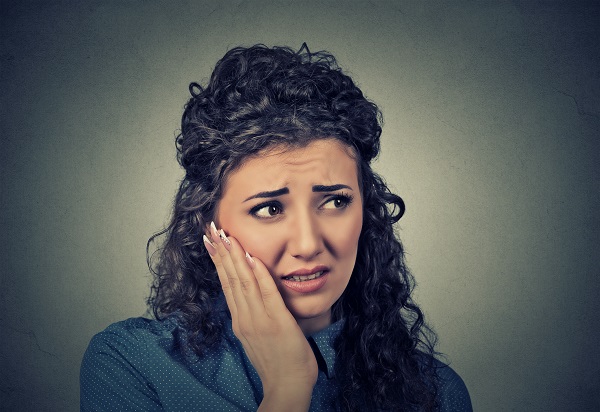We are not a registered Medicare/Medicaid Provider
Cigarettes vs. Your Teeth: The Battle for Oral Health

Cigarettes are a well-known health hazard linked to a variety of serious diseases. But beyond the lungs, smoking wreaks havoc on your oral health, creating a battleground for your teeth and gums. Let’s explore the undeniable damage cigarettes inflict on your smile.
Staining and Discoloration
Cigarettes are packed with tar and nicotine, both notorious for staining teeth. Tar is a sticky, resinous substance that adheres to tooth enamel, creating a brown or yellow film. Nicotine itself is colorless, but it reacts with oxygen to turn a yellowish-brown hue, further dulling your pearly whites.
The result? Smokers are far more likely to have stained, discolored teeth, a far cry from the bright, healthy smile most desire.
Gum Disease: A Threat to Your Smile’s Foundation
Smoking doesn’t just stain teeth; it weakens the very foundation of your smile: your gums. Here’s how cigarettes contribute to gum disease:
- Weakened Immune System: Smoking suppresses your body’s natural defenses, making it harder to fight the bacteria that cause gum inflammation (gingivitis).
- Reduced Blood Flow: Smoking constricts blood vessels, limiting blood flow to the gums. This hinders the delivery of oxygen and nutrients needed for gum health, making them more susceptible to infection.
- Increased Inflammation: Smoking irritates the gums, leading to chronic inflammation. This inflammation breaks down gum tissue and bone, eventually progressing to periodontitis, the severe form of gum disease.
The outcome? Smokers are twice as likely to develop gum disease compared to non-smokers. Periodontitis can lead to receding gums, loose teeth, and even tooth loss.
Tooth Loss: The Grim Reality of Smoking
Smoking isn’t just about stained teeth and sore gums; it’s a major risk factor for tooth loss. Here’s how smoking contributes to losing your pearly whites:
- Weakened Gum Support: As discussed earlier, smoking weakens the gums and bones that support your teeth. Periodontitis, caused by chronic gum inflammation due to smoking, destroys the tissues and bones that hold teeth in place. This loosens teeth, making them more susceptible to falling out.
- Impaired Healing: Smoking hinders the body’s ability to heal after dental procedures, including gum surgery. This can worsen existing gum problems and increase the risk of tooth loss following extractions.
- Increased Risk of Infection: Smoking weakens the immune system, making it harder to fight off infections in the mouth. This can lead to abscesses around teeth, further damaging bone and potentially leading to tooth loss.
The statistics are stark: Smokers are six times more likely to lose teeth compared to non-smokers. This not only affects your smile but also your ability to chew properly, impacting your overall health and well-being.
Other Oral Health Problems: A Smoker’s Woes
Smoking’s impact on your oral health extends far beyond stained teeth and increased risk of tooth loss. Here’s how cigarettes can harm your mouth in other ways:
- Bad Breath (Halitosis): Smoking contributes to bad breath by causing dry mouth and increasing the production of smelly compounds.
- Taste Alterations: Smoking can dull your sense of taste and smell, making it harder to enjoy your food.
- Delayed Healing: Smoking impairs blood flow and weakens the immune system, hindering the healing process after oral surgery or injuries in the mouth.
- Oral Cancer: Smoking is a major risk factor for oral cancer, a dangerous form of cancer that can affect the lips, tongue, cheeks, and other areas of the mouth.
The effects of smoking on your oral health are significant and far-reaching. But there’s good news: quitting smoking can reverse many of these damages. In the next section, we’ll explore the benefits of quitting and how to achieve a smoke-free, healthy smile.
Kicking the Habit for a Healthier Smile
Quitting smoking is one of the best things you can do for your overall health, and your oral health is no exception. Here’s why quitting is the key to a healthier smile:
- Immediate Benefits: Within just a few weeks of quitting, you’ll experience improved blood flow to the gums, promoting healing and reducing inflammation. This can lead to fresher breath and a decrease in gum sensitivity.
- Long-Term Advantages: Over time, quitting smoking significantly reduces the risk of developing gum disease and tooth loss. Additionally, your sense of taste and smell will gradually return to normal, allowing you to enjoy your food more.
- Reduced Risk of Oral Cancer: Quitting smoking drastically lowers your risk of developing oral cancer. This can save your life and prevent the need for extensive treatment.
But quitting smoking can be challenging. Here are some resources and tips to help you on your journey:
- Support Systems: Consider joining a support group or talking to a counselor for encouragement and guidance.
- Nicotine Replacement Therapy (NRT): NRT products, like patches, gum, or lozenges, can help manage withdrawal symptoms and cravings.
- Talk to Your Doctor: Your doctor can provide personalized advice and prescribe medications to aid in quitting smoking.
Tips for Quitting:
- Set a Quit Date: Choose a date in the future and commit to quitting on that day.
- Identify Your Triggers: Recognize situations that tempt you to smoke and develop healthy coping mechanisms.
- Avoid Smoking Triggers: Minimize exposure to situations and people associated with smoking.
- Stay Hydrated: Drink plenty of water to combat cravings and keep your mouth feeling fresh.
- Find Healthy Alternatives: Keep your hands and mouth occupied with activities like chewing sugar-free gum or crunchy vegetables.
Quitting smoking is an investment in your health and well-being. By following these tips and seeking support, you can achieve a smoke-free future and a brighter, healthier smile.
Restoring Your Oral Health After Smoking
Quitting smoking is a fantastic achievement; now it’s time to focus on revitalizing your oral health. Here’s what you can do:
- Schedule Dental Checkups: Schedule a dental checkup and cleaning as soon as possible after quitting. Your dentist can assess the condition of your teeth and gums, address any existing problems, and recommend a personalized treatment plan.
- Professional Cleanings: Professional cleanings are essential for removing stubborn stains caused by smoking and removing plaque and tartar buildup. This can significantly improve the appearance of your teeth and reduce the risk of gum disease.
- Maintaining Good Oral Hygiene: Brushing your teeth twice a day for two minutes with fluoride toothpaste and flossing daily is crucial for removing food particles and bacteria that contribute to oral health problems.
- Healthy Eating Habits: Eating a balanced diet rich in fruits, vegetables, and whole grains provides your body with the nutrients it needs to heal and maintain good oral health.
Following these steps will help restore your oral health after smoking. Remember, quitting is a continuous process, and consistency is key. Celebrate your progress, and don’t hesitate to seek support from your dentist or healthcare provider if you have any questions or concerns.
Final Thoughts
Smoking takes a toll on your smile, but quitting smoking is the most powerful step you can take toward a healthier mouth. By kicking the habit and prioritizing good oral hygiene, you can reverse many of the negative effects of smoking and achieve a bright, healthy smile you can be proud of. Remember, a smoke-free future leads to a healthier you, not just in your mouth but in your entire body. Now is the perfect time to take control of your health and create a brighter smile for the future!
Frequently Asked Questions
Yes! Quitting smoking is the first step towards a whiter smile. However, the stains left behind by smoking can be stubborn. During your dental checkup after quitting, discuss whitening options with your dentist. They can recommend professional whitening treatments or safe at-home products suitable for your specific needs.
Yes, your gums have the potential to heal significantly after quitting smoking. However, the extent of healing depends on the severity of gum damage caused by smoking. Quitting as soon as possible and maintaining good oral hygiene practices are crucial for optimal gum recovery. Your dentist can assess your gum health and recommend treatment options if necessary.
While vaping may not contain the same amount of tar and nicotine as cigarettes, it’s not necessarily a safe alternative for your oral health. The long-term effects of vaping on oral health are still under research. Vaping can irritate the gums, increase the risk of mouth infections, and potentially contribute to tooth decay.


